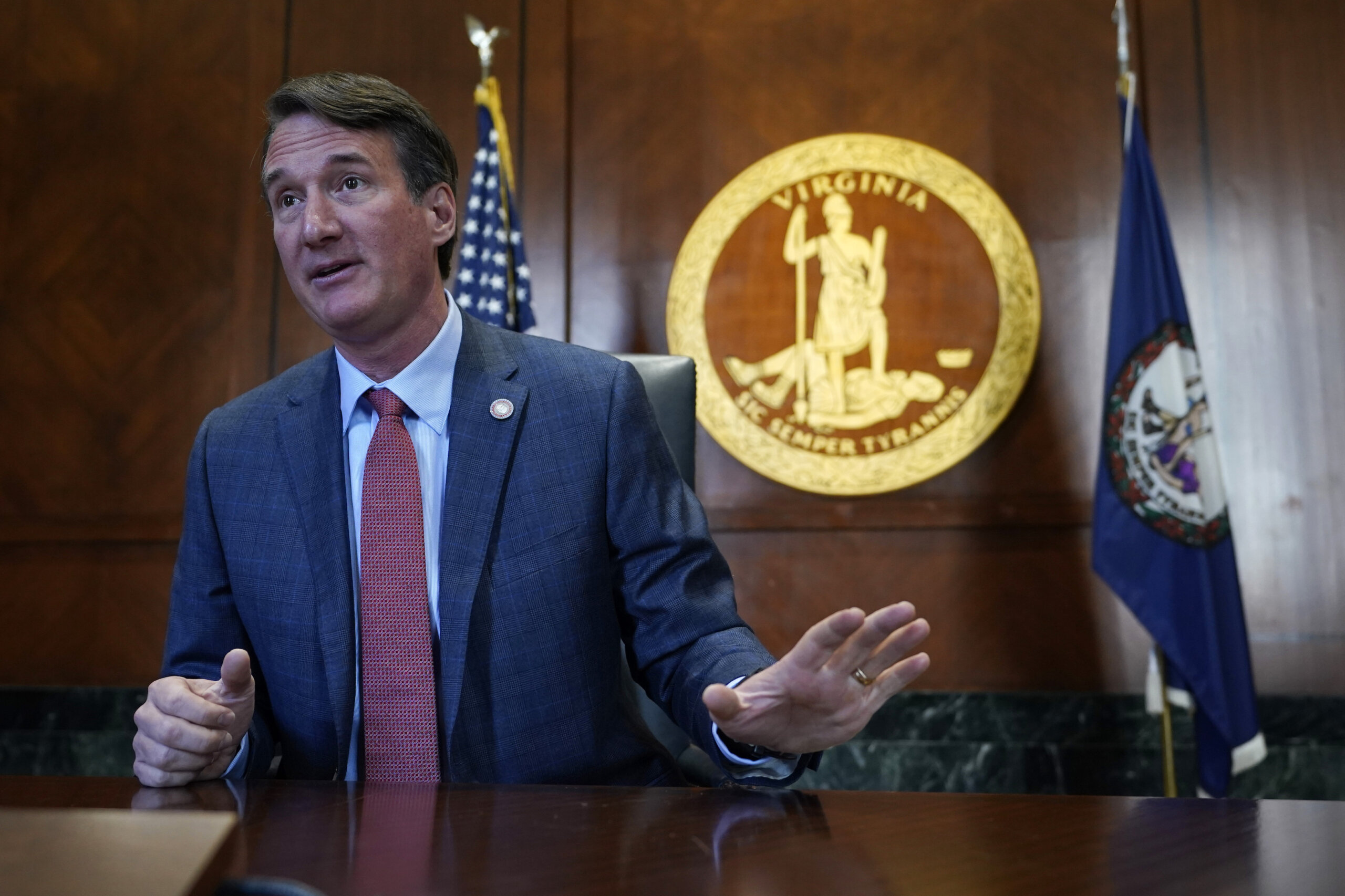In a recent interview, Virginia governor Glenn Youngkin expressed support for a policy that would allow teachers to out queer children to their parents without consent from the youth. With five new members appointed to the Board of Education in July, the Republican governor secured himself a conservative majority, empowering him to make his views on queer youth more public.
“With regards to informing parents with most important decisions about their children, I think everybody knows where I stand: parents matter,” Youngkin told WJLA News. “Parents should be at the forefront of all of these discussions. And I firmly believe that teachers and schools have an obligation to make sure that parents are well informed about what’s happening in their kids’ lives.”
Currently, policy on outing queer and trans kids to their parents in Virginia varies by county, with many regulations protecting young people’s privacy. However, the state is experiencing a rightward shift under Youngkin’s administration, and he is gaining more notice in the GOP ranks. Youngkin’s first move in office was to sign an executive order that banned the teaching of critical race theory (CRT). In January, he introduced an email “tip line,” encouraging parents to report any teachers and administrators teaching “divisive” subjects, including CRT. Youngkin also signed a bill in April that requires the Department of Education to develop policies to notify parents of any “sexually explicit” content being taught. The governor claims that such policies “give parents a greater say in their children’s education.”
In March, the Virginia Association of School Superintendents wrote a letter condemning Youngkin’s education platform, and explicitly asked him to eliminate the “tip line.” Youngkin has also refused to make the “tip line” emails public, and some Virginians believe the program should be more transparent. In a recent lawsuit, several news organizations have accused Youngkin of violating the state’s public record law.
Youngkin’s statement also comes at a time when queer youth are in an increasingly vulnerable position, especially at school. In 2021, an unprecedented number of LGBTQ2S+ books were banned in schools all across the country. In Florida, the “Don’t Say Gay” Bill, which was introduced in March, bans any teaching of content related to sexual orientation from kindergarten to third grade. Trans children have been especially targeted in the past year, with 33 states introducing more than 100 bills that target trans youth, including bans in sports, and curriculum bans. This is on top of the discrimination many queer and trans youth may face at home.
Arizona also recently passed Bill 2161, which makes it illegal for any government employee to withhold information that is “relevant to the physical, emotional or mental health of the parent’s child,” and specifically prevents teachers from withholding information about a student’s gender identity if it deviates from their assigned sex at birth.
These bills can affect the quality of education for all students, since, as Xtra has reported, these anti-LGBTQ2S+ bills popping up across the U.S. are causing teachers to quit.


 Why you can trust Xtra
Why you can trust Xtra


